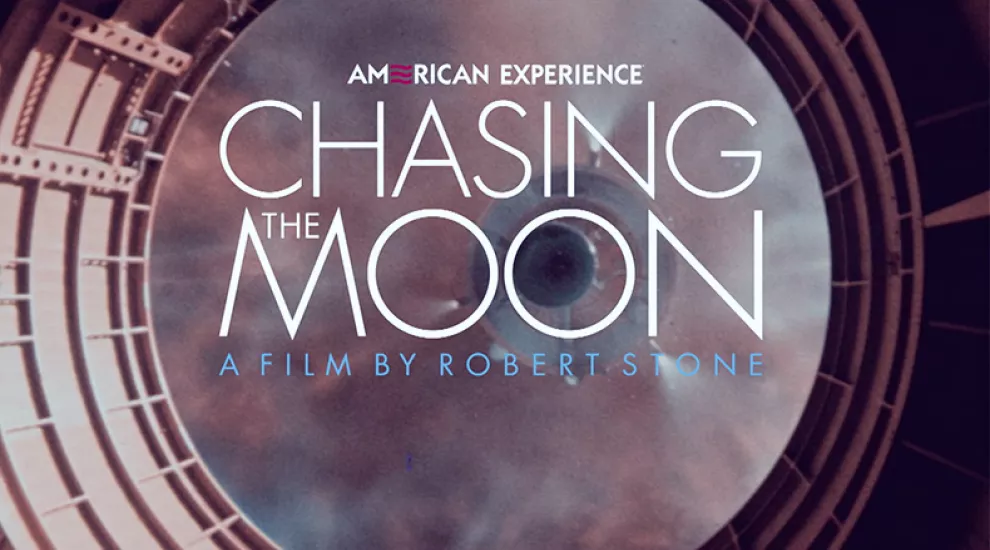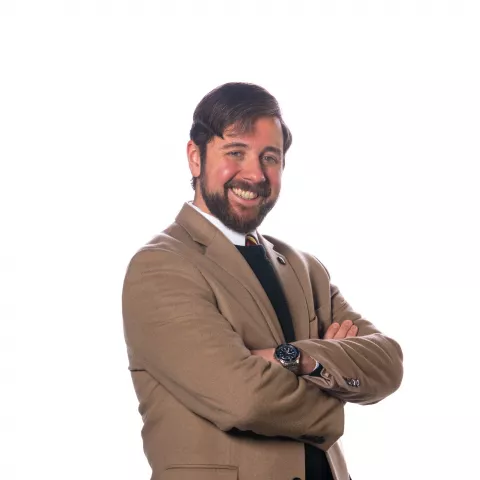
"That's one small step for man; one giant leap for mankind." -Neil Armstrong, Apollo 11
2019 marks the 50th anniversary of America's victory in the "Space Race" against the Soviet Union. Ever since humanity first existed on earth, humans have looked up into the sky to look at our closest celestial neighbor, in both awe and wonder: the moon. The date of July 20, 1969 will forever be cemented in history as the day when man first stepped foot on another world. Between 1969 and 1972, twelve men total have walked on the surface of the moon.
On July 8, 2019, PBS is proud to unveil Chasing The Moon - a film by Robert Stone, which reimagines the Space Race to the moon for a new generation; upending much of the conventional mythology surrounding the effort. The series recasts the Space Age as an inspiring period of scientific innovation, political calculation, media spectacle, visionary impulses, and personal drama. The series is a visual amalgam of lost or overlooked archival material, and features a wide cast of people who played key roles in the Space Race, such as astronauts Edwin "Buzz" Aldrin, Frank Borman, and Bill Anders. Also appearing in this program are Sergei Khrushchev, son of former Soviet premier Nikita Khrushchev and leading Soviet rocket engineer; Poppy Northcutt, a 25-year old “mathematics whiz” who gained worldwide attention as the first woman to serve in the all-male bastion of NASA’s Mission Control; and Ed Dwight, the Air Force pilot selected by the Kennedy administration to train as America’s first black astronaut.
Starting in April, with each month leading up to July, SCETV will be doing a "count-down" of sorts, with an educational blog showcasing significant events during the Space Race. Kicking off our list is the launch of Apollo 13 on April 11, 1970. Astronauts Jim Lovell, Fred Haise, and Jack Swigert lifted off from Kennedy Space Center aboard a Saturn V rocket bound for the moon. Unfortunately, Apollo 13 never landed on the moon - on the second day of the mission, a damaged oxygen tank exploded, crippling the command module Odyssey's service module. Apollo 13's lunar module Aquarius, designed for landing on the moon, was converted into a life boat. Despite the loss of power, minimal water supply, loss of cabin heat, and the need to make repairs to the carbon dioxide filter, Apollo 13 made it home safe and sound. Apollo 13 would be the last mission for astronaut Jim Lovell - a veteran of NASA's Project Gemini, who had previously flown around the moon on Apollo 8, in December 1968.
On April 12, 1961, the Soviet Union sent the first man into space - a "cosmonaut" by the name of Yuri Gagarin. Vostok 1 completed a single orbit around the earth, and returned home. Gagarin's flight is a major milestone in human history, being the first time a human being ever crossed into the threshold of outer space. The Soviets "killed two birds with one stone" by being the first to send a man into space, and to orbit the earth, before the United States accomplished those feats.
April 16, 1972 was the launch of Apollo 16 - crewed by astronauts John Young, Ken Mattingly, and South Carolina's own Charlie Duke. Apollo 16 was the second of the so-called "J missions," which meant a longer stay on the surface of the moon; to conduct scientific studies of the moon, and included use of a "lunar rover" to travel farther distances away from the lunar module.
The final date for April is April 23, 1967. In the Soviet Union, cosmonaut Vladimir Komarov, aboard Soyuz 1, was launched into space. This was the first manned flight of Russia's new Soyuz spacecraft. Sadly, tragedy struck on April 24, when Soyuz 1's parachute failed to properly deploy, and Komarov was instantly killed on impact after re-entry. Soyuz 1, and the loss of cosmonaut Komarov, is the first in-flight fatality in the history of spaceflight. Komarov's death, which happened mere months after the Apollo 1 tragedy in 1967, serves as a reminder that the space business is dangerous; leaving no room for error.
More to come, with significant Space Race dates for the month of May!

